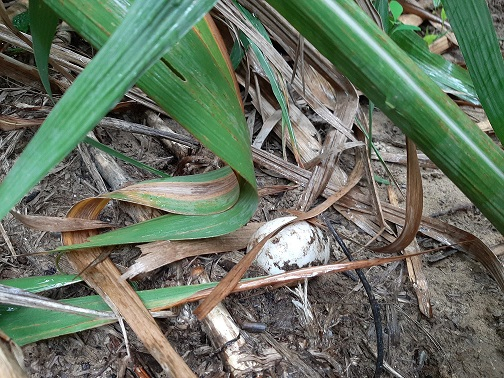
The Kaeng Krachan National Park in Phetchaburi province has declared the Wang Kha area on the banks of Phetchaburi River as a protected zone for the near-extinct freshwater Siamese crocodile. The zone has been designated as a protected habitat and egg-laying ground for the species and will be monitored by patrols.
Mana Phermpool, chief of Kaeng Krachan National Park, told local media outlet “Petchpoom Hotnews” that he had on Wednesday sent a team of park officials along with a veterinarian to inspect the Wang Kha area, located four kilometers from the Pong Leuk and Bang Kloy villages in tambon Huai Mae Priang to check for crocodile eggs. The team found a nest with 16 crocodile eggs but most had been eaten by a water monitor, leaving only one undamaged but not-yet-fertile egg, in the Wang Kha area. The park has only 5-7 Siamese crocodiles.
To protect Siamese crocodiles' habitat, the park now designated the Wang Kha area a protected zone and notified relevant agencies and local residents of its new status. Patrol teams would regularly check on and protect crocodile eggs from threats. Park officials are hopeful they will sight Siamese crocodiles, as a recent patrol found traces of them in the area overlapping the Kaeng Krachan National Park and Ratchaburi's Maenam Pachee Wildlife Sanctuary and Chaloem Phrakiat Thai Prachan National Park, he added.
The Thai law-protected Siamese crocodile was on the Convention on International Trade in Endangered Species of Wild Fauna and Flora (CITES)'s “Appendix I” list of most endangered animals and the International Union for Conversation of Nature and Natural Resources (IUCN)’s list of critically endangered species. Siamese crocodiles at Kaeng Krachan received particular attention because they are believed to be of the pure-blooded freshwater Siamese crocodile strain. The presence of these near-extinct freshwater Siamese crocodiles also was a key indicator of Kaeng Krachan Forest Complex's fertility in the proposal to list it as a World Heritage Site, which fell short in the UNESCO bid early this month.


